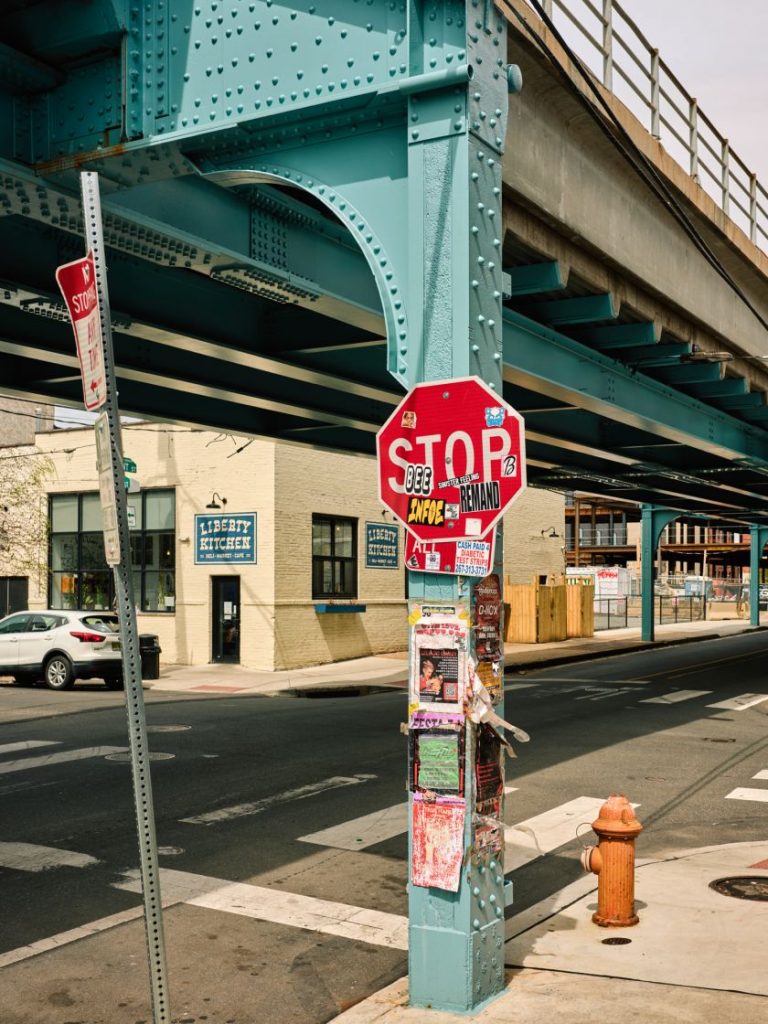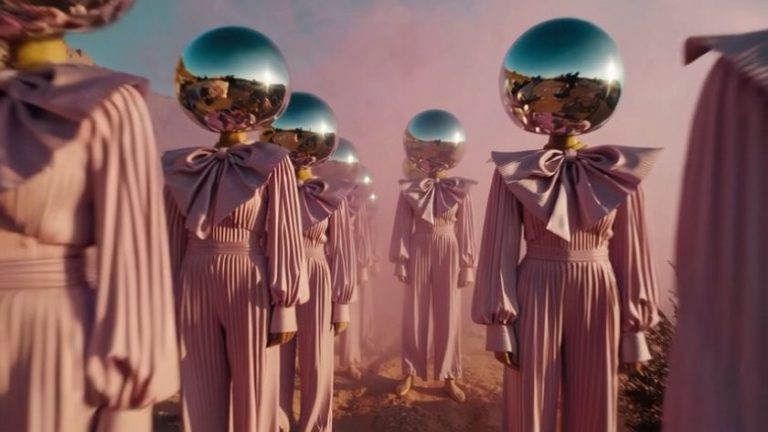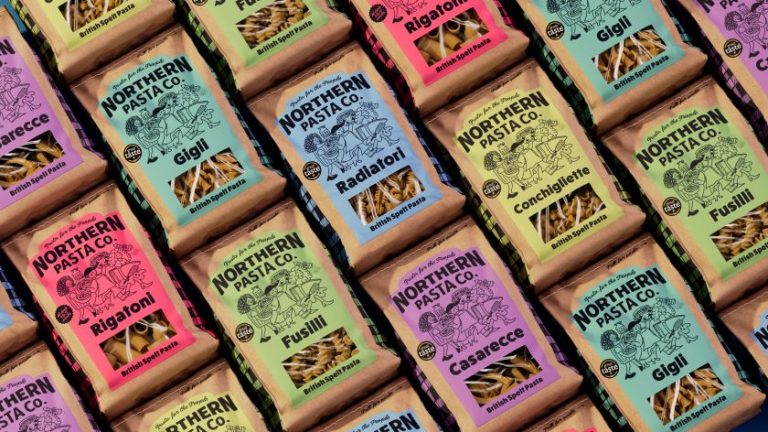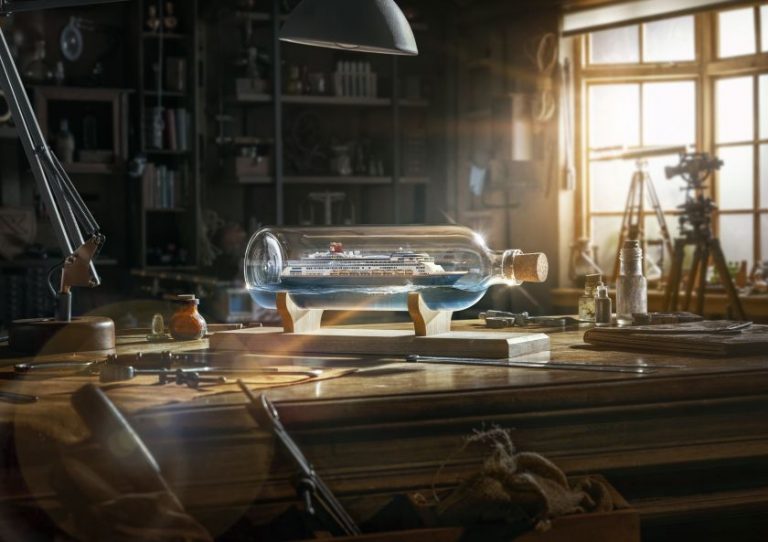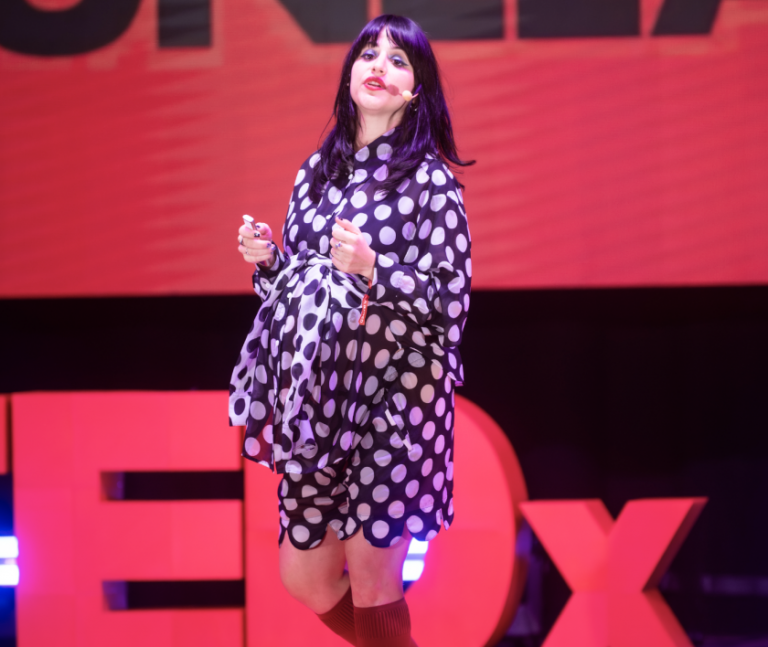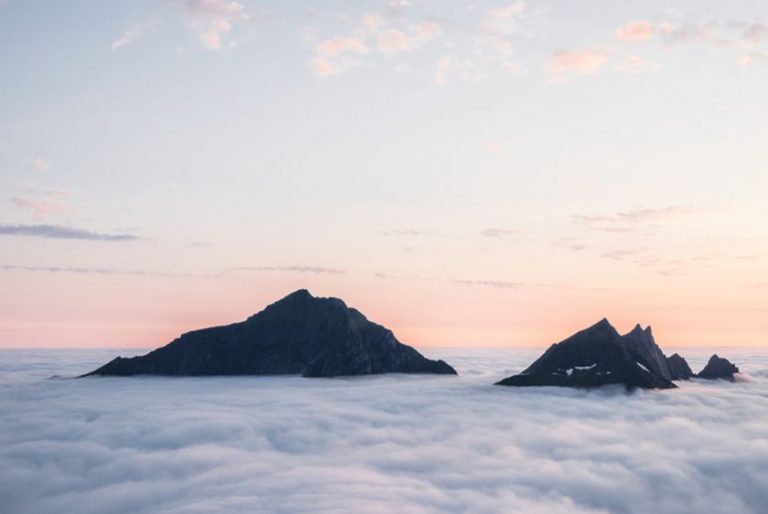
Fallout, 2020, Madeleine Bialke. Image courtesy of Huxley-Parlour Gallery
In her latest series of paintings, New York-based artist Madeleine Bialke was inspired by time spent at her family’s cabin in the Adirondack Mountains in Upstate New York during the first summer of the global pandemic. But all is not what it seems.
Long Summer references Bialke recovering from Lyme Disease and draws on the “dark underbelly of 1950s nostalgia” from the locally inspired movie, A Place in the Sun. Yes, there are the familiar wood-scapes of that beautiful area, but there’s also a sickly, sallow, post-apocalyptic feel to each painting. In some, we even see cold blue “figures” that seem to reject any external visual warmth, as if they have contracted a mysterious disease.
Bialke’s dystopian paintings are mostly devoid of people, as she chooses instead to centre on organic forms, such as “lozenge-like” leaves, fulsome, rounded bushes, and insidiously anthropomorphic foliage. By doing so, Bialke subverts an anthropocentric perspective, reminding us that the natural world isn’t exclusively a resource for humans. This cynicism is hinted at in her eerie compositions, where people and trees uncannily mirror one another in what could be described as a mutual understanding. It’s as though the trees and foliage themselves are suffering from the same ailments, aware of what is happening to the world.

Sunwatcher, 2021. Madeliene Bialke. Image courtesy of Huxley-Parlour Gallery

Three Sisters, 2020. Madeleine Bialke. Image courtesy of Huxley-Parlour Gallery
Taking a step back to observe Bialke’s work as a whole, it’s clear that artists such as Edward Hopper and Grant Wood have influence, and in particular, the work of the Group of Seven – a group of Canadian landscape painters working at the turn of the century.
Whilst all of these creatives probed the relationship between society and the environment at the waning of the industrial age, Bialke’s work brings these ideas into a contemporary context by making nature look almost artificial or perhaps damaged by human activity. Although serene and empty, each of Bialke’s landscape paintings poses important, urgent questions about climate, industry, and our collective fate.

Charmed Life, 2020. Madeleine Bialke. Image courtesy of Huxley-Parlour Gallery.

Verdict, 2021. Madeleine Bialke. Image courtesy of Huxley-Parlour Gallery
It’s a gloriously disturbing body of work in alien hues and sombre tones that reminds us of the damage we’re causing to our precious planet. Trees often form the central theme, highlighted in luminescent colours that appear to glow beyond the canvas: “Trees are both significant and other; dream-like apparitions that dot the landscape and loom overhead,” explains Bialke. “Trees are incredibly numerous in our lives, blanketing hills and lining streets. They are quieter conversationalists than other creatures.”
Long Summer is on show at London’s Huxley-Parlour gallery until 15 January 2022. To find out more about Madeleine Bialke, visit www.mbialke.com.

Cliffhanger, 2021. Madeleine Bialke. Image Courtesy of Huxley-Parlour Gallery

Three Seasons, 2020. Madeleine Bialke. Image courtesy of Huxley-Parlour Gallery

Installation view – Madeleine Bialke, Long Summer, at Huxley-Parlour Gallery. Image courtesy of Huxley-Parlour



